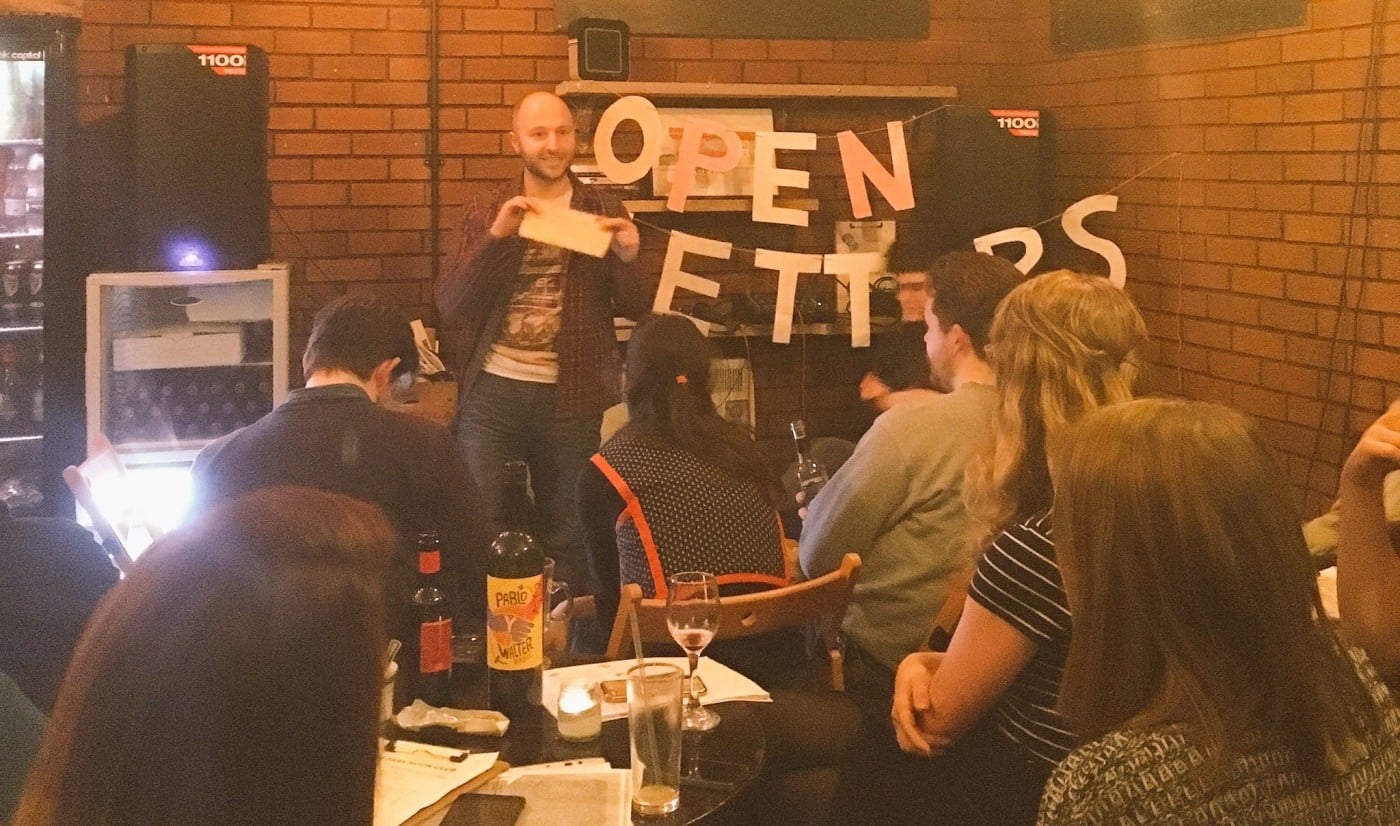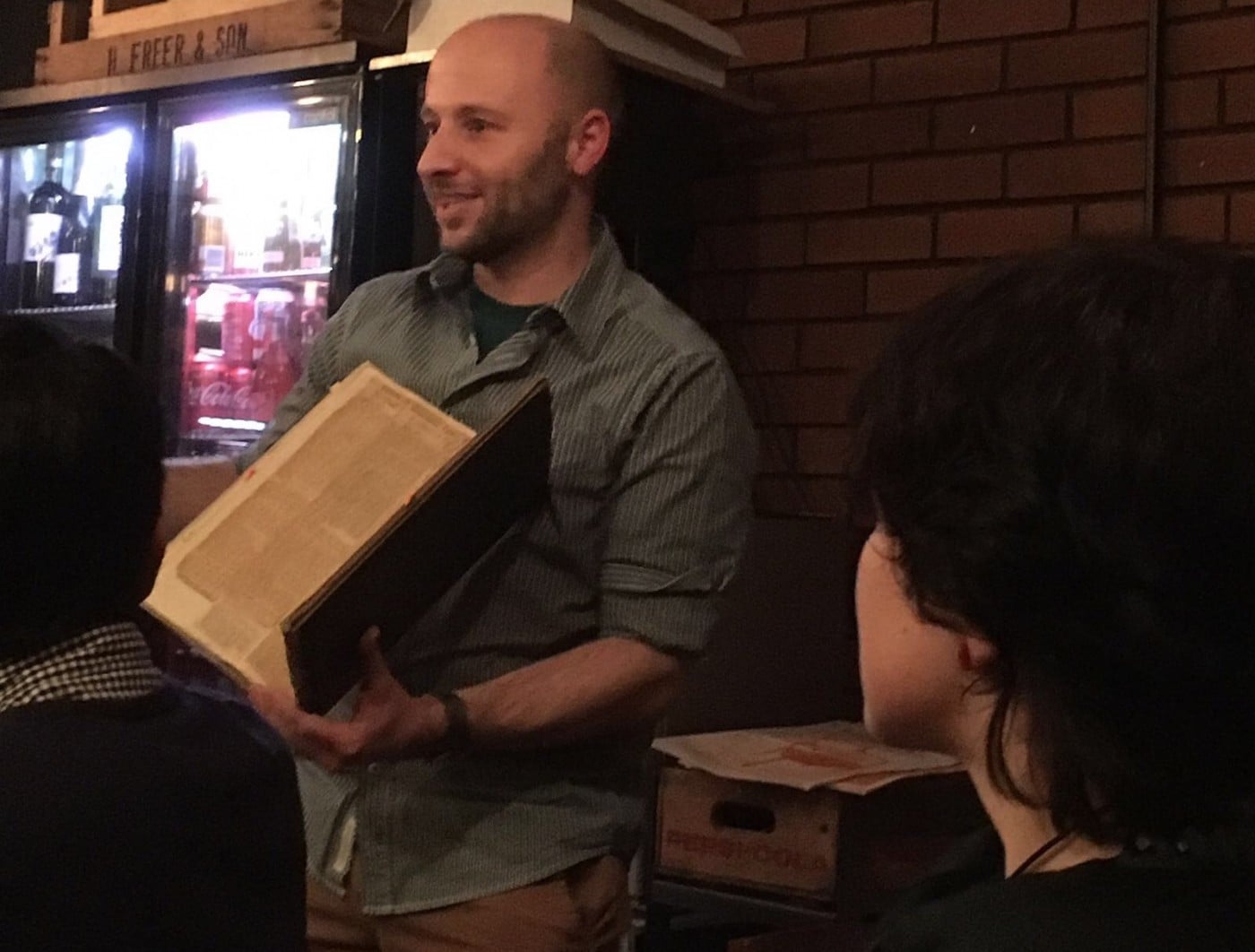
I don’t receive all that many letters anymore, and I suspect that you don’t either. Most of what drops through my letterbox doesn’t excite me: Council Tax bills, junk mail, bank statements from accounts that should be paperless anyway. Postcards, sure, when friends and family are on holiday.
But there are, occasionally, letters that excite me, that I clutch close and read immediately, leaning against the door. Or sometimes save for later, stuff into a pocket and read on the bus or walking down the street: the odd letter from my Parisian penpal, Vincent, complete with ticket stubs from exhibitions he’s been to. Intermittent updates from my brother in Bristol, where his life over the past few months rushes hurriedly over four sides of paper. Beautiful handwriting that curls across thick, cream paper from my grandmother. Small folds of paper with brief, funny notes and accompanying photos from my grandfather.
Just because these letters that matter are few and far-between doesn’t mean that letter-writing is, as many proclaim, a “lost” or “dying” art. Letter-writing is a hidden art, perhaps, in that it is produced for the smallest possible audience: a single, specific person.

We don’t see a lot of letters simply because we are not the audience for them, but still they exist, out there in the world, working their magic on their recipients. How many great works are being produced, how many beautiful pieces of prose and poetry, how many meditations on loss, love, and everyday life, and all shared between just two people? Letters constitute one of humanity’s greatest works, spanning centuries and touching on every feeling, every thought, detailing everyday braveries and endless ingenuity. Virginia Woolf, in Jacob’s Room, writes: ‘Venerable are letters, infinitely brave, forlorn, and lost.’ But what if we actively tried to un-lose letters? To find and praise all those hidden correspondences? What if we were permitted to view more than a fraction of the vast body of work constituted by letters?
The aim of Open Letters is to bring correspondence to a wider audience: we read letters, aloud, in front of an audience. The letters might be real or unreal, fiction or nonfiction. Some letters are written specifically for the open-mic evenings we run, some are old, some are new, some are impersonal. Some letters are to people, places, things. People have read letters to ex-lovers, to childhood heroes, to parents, to dogs, to lightbulbs. People have read letters between their grandparents, between unknown artists, between people who never met.
At the moment, we’re producing the first issue of a print version of Open Letters, which will consist of five letters, plus ephemera, contained in an envelope with a wraparound cover. The first issue will launch in June this year, and will be available to buy in select stores, but they’ll also be posted out, dropping through letterboxes and bringing stories of all kinds to people across the world.
We’re currently accepting submissions. Letters, fiction or nonfiction, real or unreal, sent or unsent can be submitted to: [email protected]. Writers and artists selected for inclusion will be paid, thanks to the support of Leeds Inspired. The closing date is 30th April 2017. Find out more at: opnletters.net. We look forward to hearing from you. Open Letters is also a podcast. Find it on itunes, or wherever you get your podcasts.
Filed under: Written & Spoken Word
Tagged with: Hyde Park Book Club, jacob's room, Open letters, Virginia Woolf



Comments